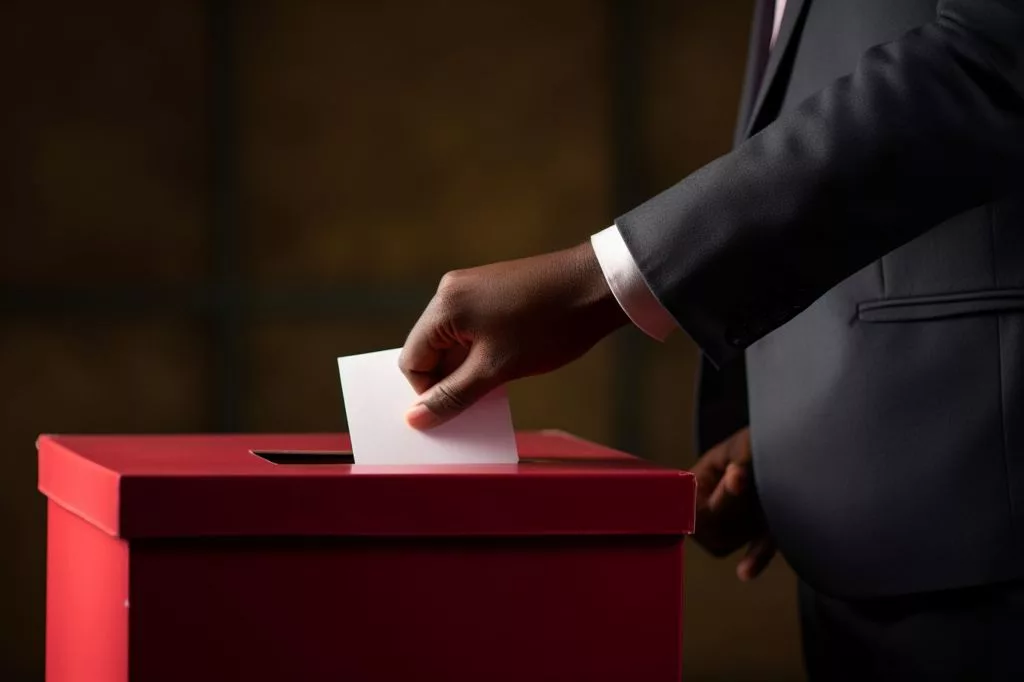South Africa is preparing for the 2024 National and Provincial Elections, with a focus on continuous improvement in election administration and adherence to international standards of credibility, fairness, and freedom. The success of the elections depends on the involvement of all citizens, including political parties, voters, civil society, and the media. Conflict resolution panels will address potential disputes, and inclusivity and diversity are emphasized as independent candidates can now contest seats. Upholding accountability and transparency remains crucial for South Africa’s democracy’s ongoing quest for perfection.
What is South Africa’s approach to steering democracy forward through the 2024 National and Provincial Elections?
South Africa’s Electoral Commission Chairperson, Mosotho Moepya, leads the nation as it prepares for the 2024 National and Provincial Elections. The country strives for continuous improvement in election administration and adherence to international standards of credibility, fairness, and freedom. The NPE2024’s success depends on the involvement of all citizens, including political parties, voters, civil society, and the media. Conflict resolution panels throughout the country will address potential disputes, and inclusivity and diversity are emphasized as independent candidates can now contest seats. Upholding accountability and transparency remains crucial for South Africa’s democracy’s ongoing quest for perfection.
Laying the Groundwork for Election Success
As South Africa’s democracy nears its 30th anniversary, the nation embarks on the 2024 National and Provincial Elections (NPE2024) journey under the guidance of Electoral Commission Chairperson Mosotho Moepya. Embracing its rich democratic heritage, South Africa adapts to the constantly evolving global environment.
South Africa’s electoral integrity has captured worldwide attention, with the country’s Perceptions of Electoral Integrity (PEI) score ranking among the highest globally. The Electoral Commission acknowledges the challenge of exceeding this accomplishment in the NPE2024 and takes on this immense responsibility with honor.
Over the past 30 years, South Africa has experienced peaceful transitions of power and established a society grounded in freedom, democracy, and human rights. Although the nation’s move toward democracy is frequently deemed miraculous, the efforts and sacrifices underlying this progress should not be overlooked. The country must persist in confronting the challenges ahead while maintaining accountability and transparency.
Fostering a Cooperative Approach to Democracy
As the NPE2024 draws near, South Africa must focus on the future of its electoral democracy by committing to essential principles and actions. Continuous improvement in the administration of elections is necessary, along with adherence to international standards of credibility, fairness, and freedom. While the Electoral Commission bears much of this responsibility, the NPE2024’s success depends on the involvement of all citizens.
Political parties and candidates should present their policies and services with the aim of promoting a thriving and dignified South Africa. Voters should be able to access and assess the variety of options available, making their choices freely in a supportive environment conducive to political activity.
A dynamic civil society must encourage voter registration and involvement, disseminate relevant election information, and act as guardians to ensure the electoral process’s integrity. The media has a critical role in providing impartial and verified information to the public, combating misinformation and digital threats that may jeopardize the elections’ credibility.
Ensuring Inclusivity and Conflict Resolution
To address potential conflicts and disputes, the Commission will set up conflict resolution panels throughout the country, seeking reputable women and men trusted within their communities to contribute to this vital aspect of the electoral process.
The NPE2024 also signifies a historic turning point, as independent candidates can now contest seats in South Africa’s national and provincial legislatures. This development emphasizes the value of inclusivity and diversity in the country’s democracy, and the legal framework introduced by the Electoral Amendment Act 2023 will undoubtedly necessitate further clarification and comprehension.
Upholding Accountability and Transparency
The Electoral Commission and the wider South African society must remain committed to the principles of accountability and transparency. The nation’s ongoing quest for a more perfect democracy depends on the collaborative efforts of leaders, institutions, and citizens to uphold the rule of law and good governance.
As South Africa embarks on this new chapter with the NPE2024, the next 30 years offer untold possibilities for growth, unity, and progress. By working together, South Africans can ensure that their electoral democracy serves as a source of hope for their nation and a model for the world.
1. When are the 2024 National and Provincial Elections taking place in South Africa?
The 2024 National and Provincial Elections in South Africa will take place as scheduled in 2024.
2. Who is leading South Africa’s preparations for the 2024 National and Provincial Elections?
The Electoral Commission Chairperson, Mosotho Moepya, is leading South Africa’s preparations for the 2024 National and Provincial Elections.
3. What is the focus of South Africa’s approach to the 2024 National and Provincial Elections?
South Africa’s approach to the 2024 National and Provincial Elections is focused on continuous improvement in election administration and adherence to international standards of credibility, fairness, and freedom.
4. Who is responsible for ensuring the success of the 2024 National and Provincial Elections in South Africa?
The success of the 2024 National and Provincial Elections in South Africa depends on the involvement of all citizens, including political parties, voters, civil society, and the media.
5. What steps is South Africa taking to ensure inclusivity and diversity in the 2024 National and Provincial Elections?
The Electoral Amendment Act 2023 introduced by South Africa allows independent candidates to contest seats in the national and provincial legislatures, emphasizing the value of inclusivity and diversity in the country’s democracy.
6. How will potential conflicts and disputes be addressed during the 2024 National and Provincial Elections in South Africa?
The Electoral Commission will set up conflict resolution panels throughout the country, seeking reputable individuals trusted within their communities to contribute to this vital aspect of the electoral process.
7. What role does the media play in South Africa’s electoral process?
The media plays a critical role in providing impartial and verified information to the public, combating misinformation and digital threats that may jeopardize the credibility of South Africa’s elections.
8. What principles must South Africa uphold in its ongoing quest for a more perfect democracy?
South Africa must remain committed to the principles of accountability and transparency in its ongoing quest for a more perfect democracy. Good governance and upholding the rule of law are crucial for South Africa’s electoral democracy to serve as a source of hope for the nation and a model for the world.








